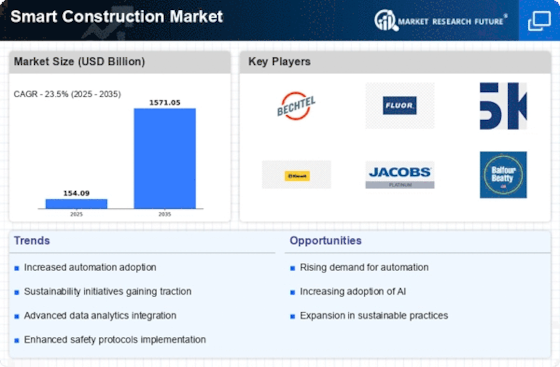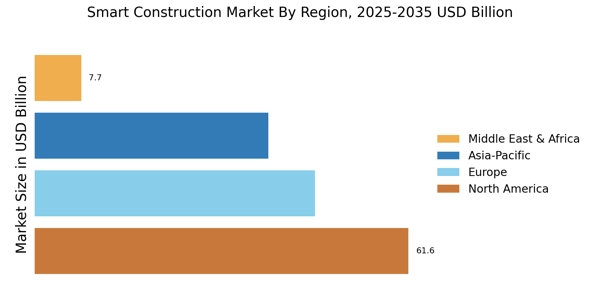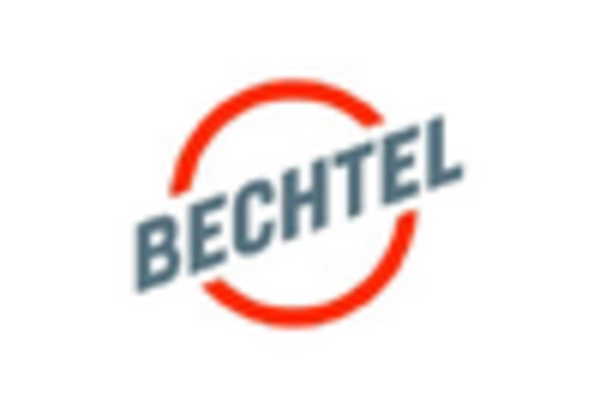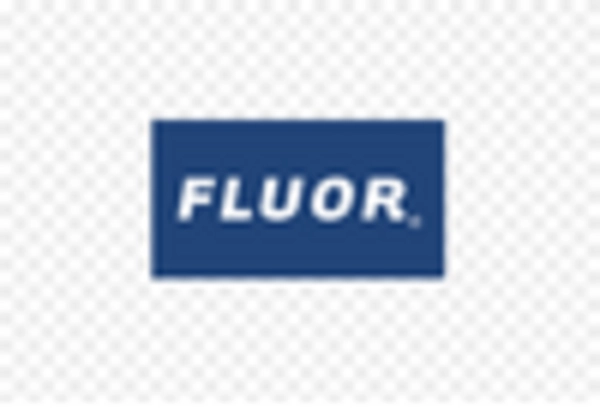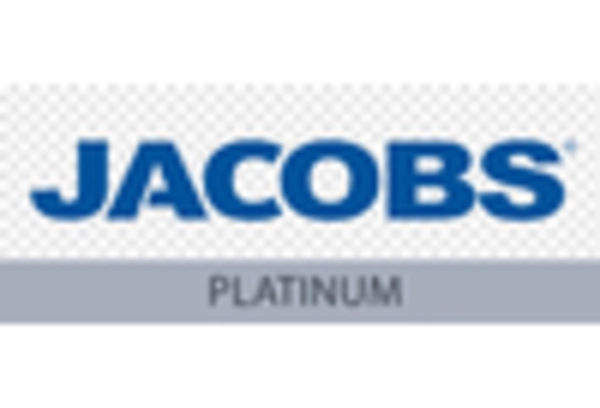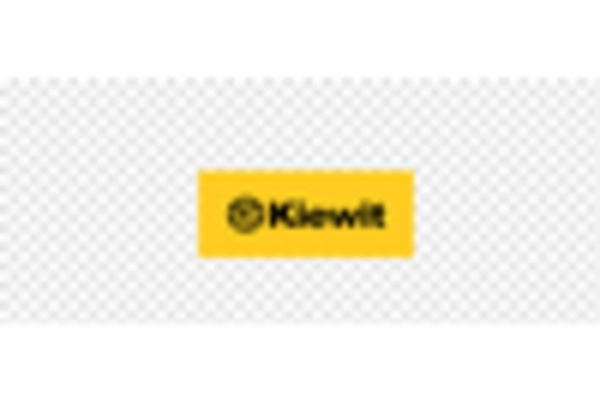Leading market players are investing in continuous research and development to bring forth innovative solutions. This includes advancements in IoT, AI, BIM, and other smart technologies to enhance construction processes, improve efficiency, and meet evolving industry needs. Market participants are also undertaking a variety of strategic activities to expand their global footprint, with important market developments including new product launches, contractual agreements, mergers and acquisitions, higher investments, and collaboration with other organizations. To expand and survive in a more competitive and rising market climate, the Smart Construction industry must offer cost-effective items.
Given the dynamic nature of the construction industry and technology landscape, companies in the global Smart Construction industry adopt agile business strategies to benefit clients and increase their market share. In recent years, the Smart Construction industry has offered some of the most significant advantages to Consumers. Major players in the Smart Construction Market, including Westbase Technology, CASE, XCMG, Mohocon, Sky Tronic, Komatsu, Sunward, StreamBIM, Zoomlion, and others, are attempting to increase market demand by investing in product development to increase their product line and cater to diverse consumer needs.
URC stands as a global leader in smart home automation and control solutions, renowned for its Total Control platform. The company seamlessly integrates cutting-edge technology with sophisticated design, allowing users to manage diverse home systems through single-touch or voice activation. With over 100 million touch screens and remotes sold in the past decade, URC is celebrated for its unrivaled performance and reliability. The comprehensive range of URC control systems, including Total Control and Complete Control, offers users a tailored experience.
URC's user interfaces encompass tabletop controllers, in-wall touchscreens, remotes, keypads, and mobile apps, supported by voice control integration with industry leaders like Comcast Xfinity, Amazon Alexa, and Google Assistant. The company's systems are expertly designed, installed, and maintained by a network of trained systems integration professionals.
In February Legrand forged a collaboration with URC, a prominent supplier of smart home automation and control systems, aiming to enhance Smart Home Control. This partnership entails joint efforts to deliver a smooth and integrated control experience for Legrand's Vantage lighting and climate systems.
Johnson Controls, a pioneer with a legacy spanning over 135 years, stands at the forefront of transforming environments worldwide. As the global leader in smart, healthy, and sustainable buildings, the company is dedicated to reimagining building performance for the benefit of people, places, and the planet. Leveraging its extensive history of innovation, Johnson Controls introduces cutting-edge solutions through OpenBlue, its comprehensive digital offering. With a vast team of 100,000 experts across 150+ countries, Johnson Controls boasts the world's largest portfolio of building technology, software, and service solutions, serving diverse industries such as healthcare, education, data centers, airports, stadiums, and manufacturing.
In August 2022, Johnson Controls collaborated with Microsoft Beijing Campus to enhance its continuous retrofit and optimization of building operations. This collaboration resulted in a remarkable 27.9% energy savings and a significant improvement in key equipment uptime, reaching 98%.

